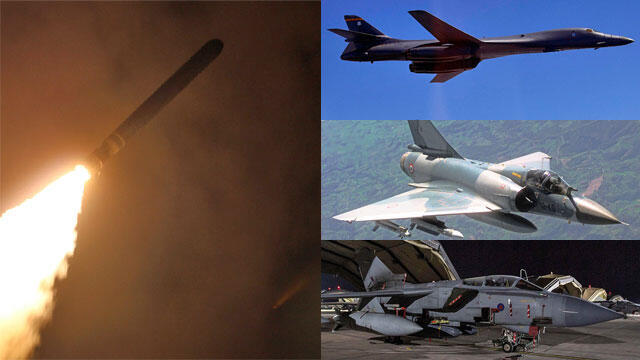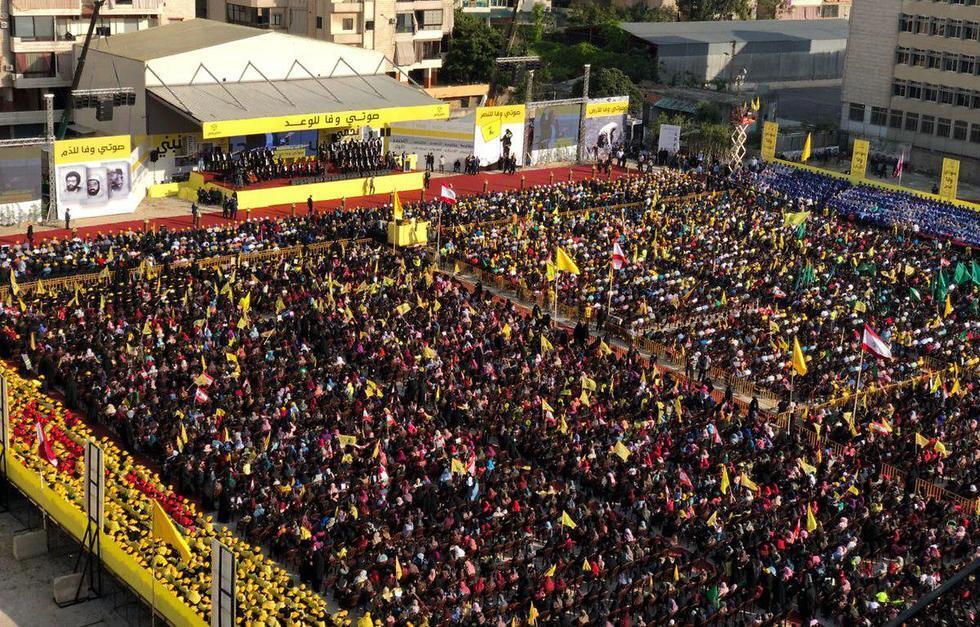Getting your Trinity Audio player ready...
The first question has to do with the attack’s success. The United States, Britain and France are talking about a successful attack, saying all targets were hit. A Russian general in Syria says that about 70 percent of the missiles were intercepted by the Syrian air defense system. This is an unreasonable discrepancy in a place where the facts should be clear. If the Russian version is true, there is a cause for concern. So what actually happened?
2 View gallery


Why are the American only talking about ‘inputs’ (what we did) and not about ‘outputs’ (the actual result)?
(צילום: AP, EPA, AFP)
The second question has to do with the extent of damage to Syria's chemical arsenal. As far as I know, the Syrians have always made sure to keep their chemical weapons in deep tunnels which can’t really be penetrated by cruise missiles. So what actually happened? Did they just fire at chemical targets or did they also destroy them? Why are the American only talking about “inputs” (what we did) and not about “outputs” (the actual result)?
A third question has to do with the American declaration “mission accomplished .”Furthermore, the Americans rushed to declare that if Syria used chemical weapons again, the US would consider striking again. That’s a puzzling declaration. Why did the Americans have to publicly calm Syrian President Bashar Assad down? Why did they reduce the future cause to the exclusive use of chemical weapons? Why didn’t they say that if and when the Syrians caused massive damage to civilians once again (whether with chemical weapons or in a different way), the US would respond with force? And what if the Assad army burns hundreds of people alive? Would it be wrong to respond in that case?
As far as Israel is concerned, there are two immediate conclusions. The first conclusion has to do with the possibility that Russia will supply Syria with S-300 surface-to-air missile systems .This weapon threatens not only the Israel Air Force’s freedom of action in Syria's skies but also our freedom of action in Lebanon’s skies. And if these systems are installed in northwest Syria, they could also threaten the civil aviation routes to Israel.
This is a reality Israel cannot accept, so the dialogue with the Russians would have to focus on this issue, including a hint that Israel might target these systems if they are supplied to Syria.
2 View gallery


Hezbollah rally. Israel must make it clear to Lebanon that an Israeli response following an from Lebanese territory won’t lead to a conflict between Israel and Hezbollah, but to an all-out war between Israel and Lebanon
It will be a difficult dispute, and we can guess what the Russians will say. In 2004, when I served as head of the National Security Council, I met with the Russian defense minister and chief of staff in Moscow. I tried to convince them not to sell to Syria a certain antiaircraft weapon (which wasn’t as dangerous as the S-300). The Russians replied: We are selling your enemies (Syria) antiaircraft missiles, but this is only a defensive weapon; you, on the other hand, are selling our enemies (Georgia) mortar shells, which are an offensive weapon.
Despite the difficulty, and although the Russians are expected to play dumb, we should argue with them and make it clear that we won’t hesitate to take action. Russian President Vladimir Putin has respect for people who are not afraid to act.
The second conclusion has to do with an Iranian retaliation against us. At the moment, Iran’s ability to target Israel from Syrian territory is very limited. In this state of events, the Iranians could use Hezbollah against us. The Lebanese organization is a very serious threat considering the extent of damage it could cause to the State of Israel.
There is one way to make it difficult for Hezbollah to decide to take action against Israel: Israel must make it clear to Lebanon that an Israeli response following an attack on Israel from Lebanese territory won’t lead to a conflict between Israel and Hezbollah (like in the Second Lebanon War), but to an all-out war between Israel and Lebanon. Such a war would lead to heavy destruction in Lebanon. This is something Hezbollah isn’t interested in either.
The Iranian pressure to act against us must be balanced with counterpressure from the people of Lebanon. This pressure will only be achieved if we clarify the extent of damage that will be inflicted on Lebanon, its government, its infrastructures and its residents.
Major-General (res.) Giora Eiland is a former head of Israel's National Security Council.

